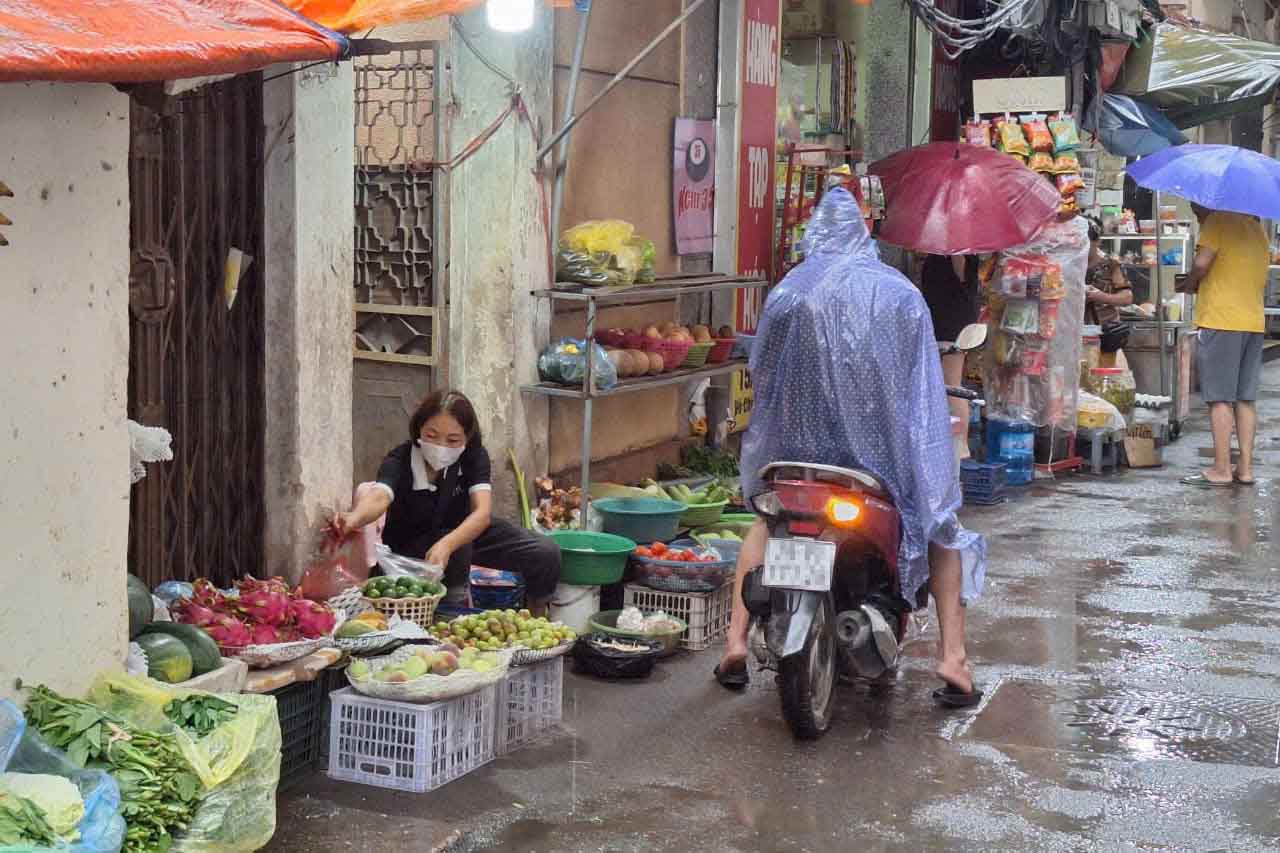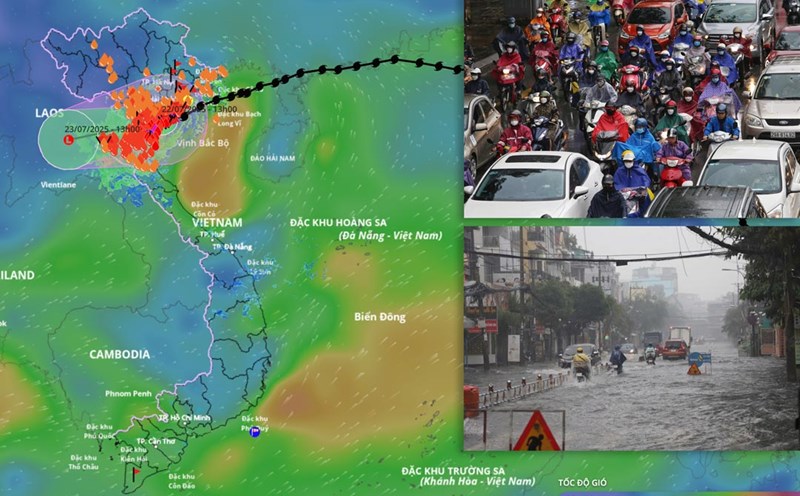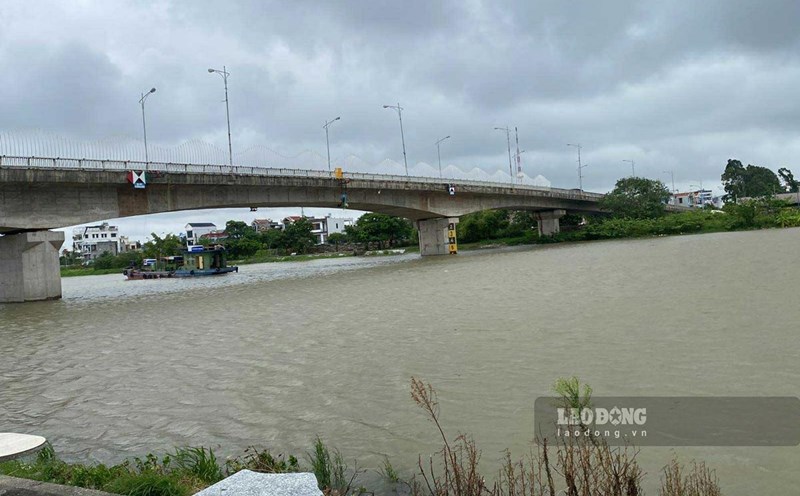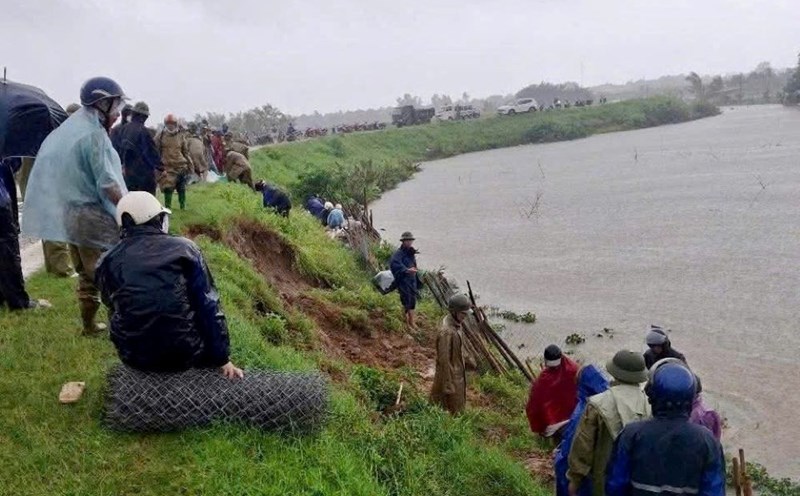On the morning of July 22, Mr. Doan Van Tinh (Ha Dong ward, Hanoi) asked to be 1 hour late to arrange family work. Mr. Tinh is currently working as a worker at a company specializing in shoe production in Yen Nghia Industrial Cluster.
Mr. Tinh said that on the morning of July 22, according to the school's announcement, his two children (who are in grade 6 and grade 9 at a private school) were given a day off to avoid storm No. 3.
Mr. Tinh's wife works as an administrative officer in Phuong Liet ward, so she still goes to work normally. In the morning, Mr. Tinh took the opportunity to go to the market to buy food for about 3 days, to prevent the storm.

"I bought enough meat, eggs, and vegetables for the next 3 days. Prices at the market on the morning of July 22 were slightly higher. Accordingly, meat and rib prices increased by about 10,000 VND/kg; vegetables increased by about 3,000 - 5,000 VND/bunch. Fruits such as potatoes, squash, squash, etc. have increased in price by about 30% compared to normal days, said Mr. Tinh.
Ms. Nguyen Thi Hoa is renting a room with a friend in Bo De ward (Hanoi), currently working as a garment worker. Ms. Hoa said that, drawing from the experience of Typhoon Yagi last year, this year, she plans to take a slight different storm.
"Last year, I only bought instant noodles, eggs, and vegetables to store, when there was no power, there were flashlights and mini gas stoves, but eating instant noodles for a few days was tiring and alcohol-on. This year, my roommate and I agreed to buy meat to the warehouse, boil 2 heat-retaining posters, melon and cabbage salt and prepare a gas stove, if there is no power, we will cook rice," said Ms. Hoa.
According to Ms. Hoa, she fully charges household electrical appliances such as phones, spare batteries, charging fans, etc.
Worried that the low rental area could be flooded, Ms. Hoa and her friend moved their belongings higher. The 2 motorbikes were sent to acquaintances' houses to avoid flooding. "Last year, many people subjectively left their cars in my rented room, and then were flooded and went to repair them, costing millions of dong" - Ms. Hoa recounted.
The family of Mr. Quan Van Duc - a worker renting a room in Dai Thanh commune (Hanoi) - also proactively plans to fight the storm.
Mr. Duc said that his wife is waiting to give birth at home, and his eldest daughter is 4 years old. From the afternoon of July 21, when he heard that the storm was almost approaching the mainland and had just finished work, Mr. Duc went to the market to buy enough food and supplies for the rainy and stormy days.
"My wife was due to give birth in early August, these days are already very difficult, so I can't do anything. I prepared food and supplies for the whole family for a few days. My company also has a plan to take turns on duty/working on stormy days, and my colleagues give me priority because I have a small child and my wife is about to give birth. When my wife was in labor early, we had prepared our belongings, Mr. Duc shared.
According to Mr. Duc, in addition to supplies and food, he also prepared basic medicine for his wife and young children.
According to the Hanoi Department of Industry and Trade, the city reserves emergency relief goods, distributes to serve people when natural disasters occur beyond the reserve capacity of localities; determines the need to reserve goods, plans to use some emergency relief items...
The Department of Industry and Trade also plans to stabilize prices for 13 groups of goods, including food; pork; chicken, duck; fresh, frozen seafood; processed foods from meat, poultry; cooking oil; vegetables, tubers; poultry eggs; milk for children under 6 years old; spices; sugar... The implementation period of the stabilization program is until the end of May 2026.
For some other consumer goods with high demand during storms, such as gasoline, medicine, rubber boots, raincoats, rain tarpaulins of all kinds, flashlights, flashlights, storm lamps, alumina, fuels, construction materials, the Department of Industry and Trade recommends that businesses determine the needs of the people, the ability to implement the business, develop plans to reserve and supply goods, proactively source goods to meet the needs of the people.











